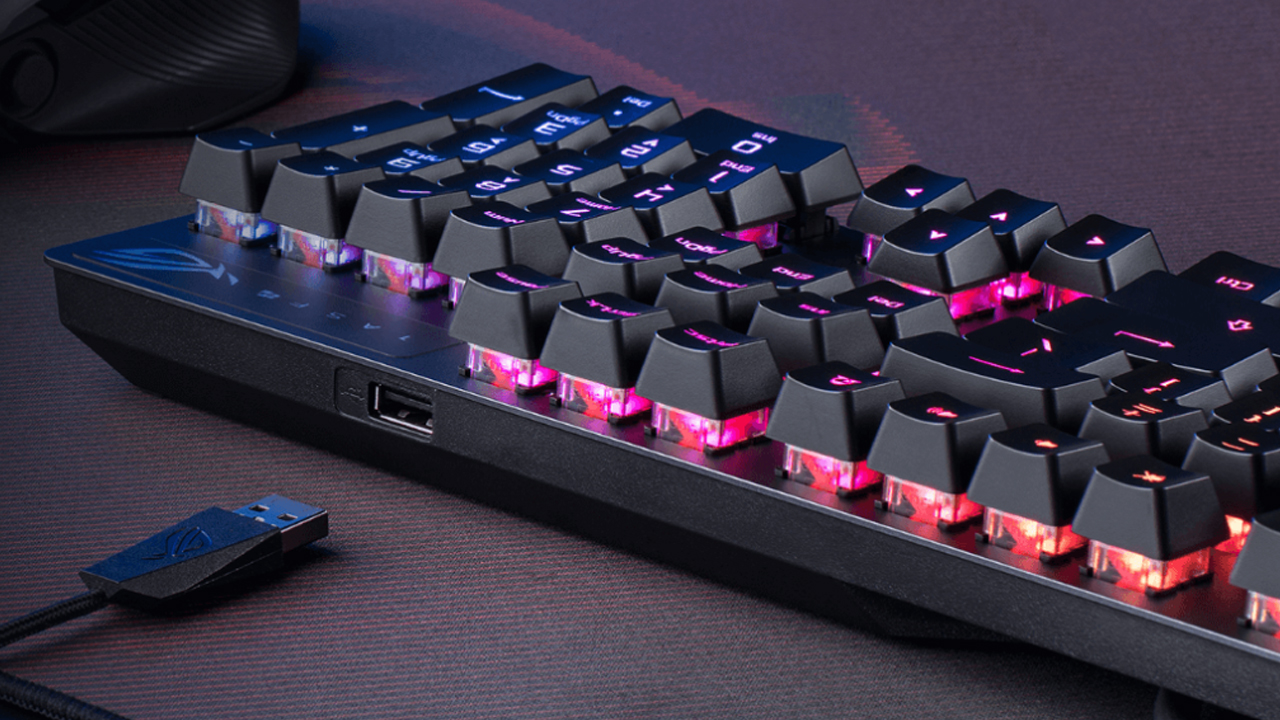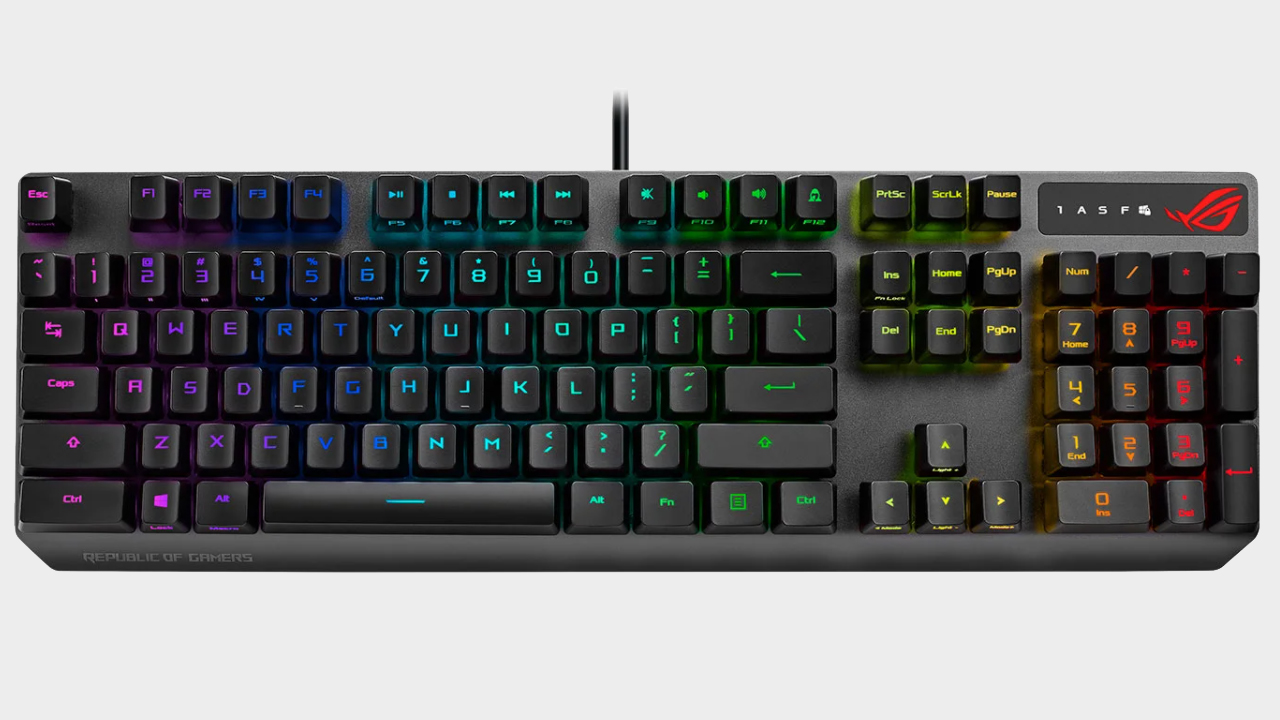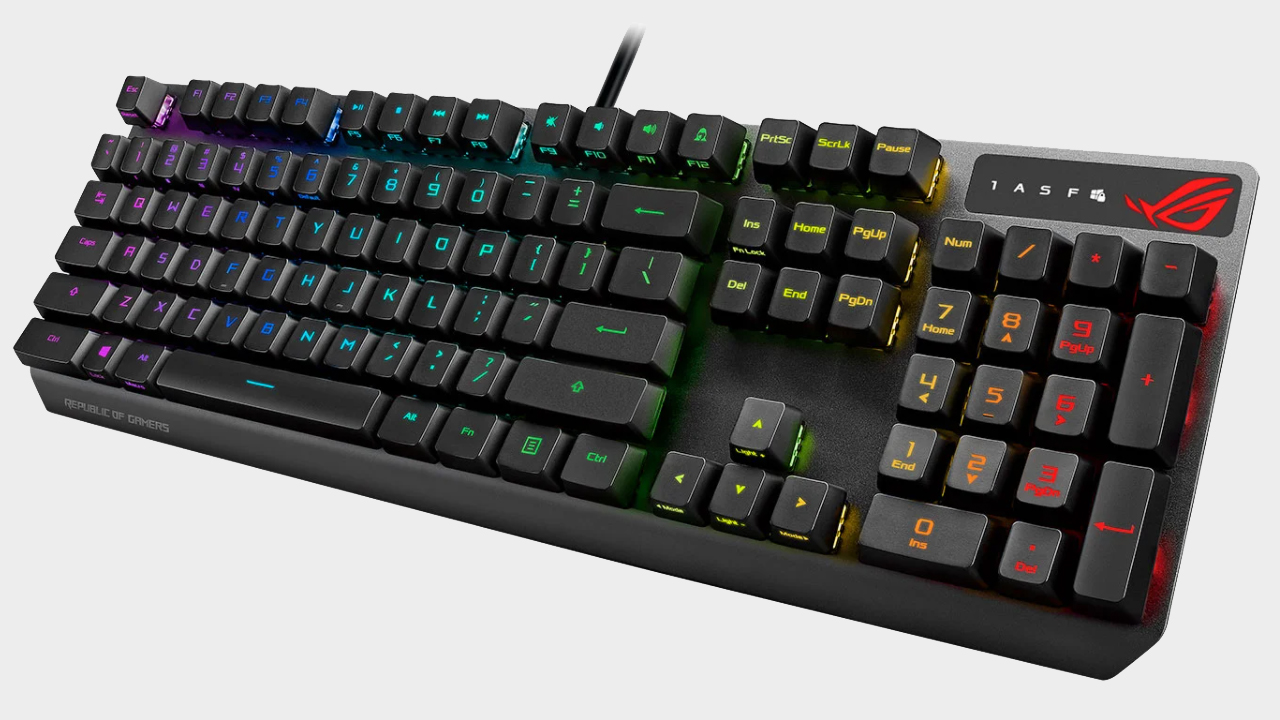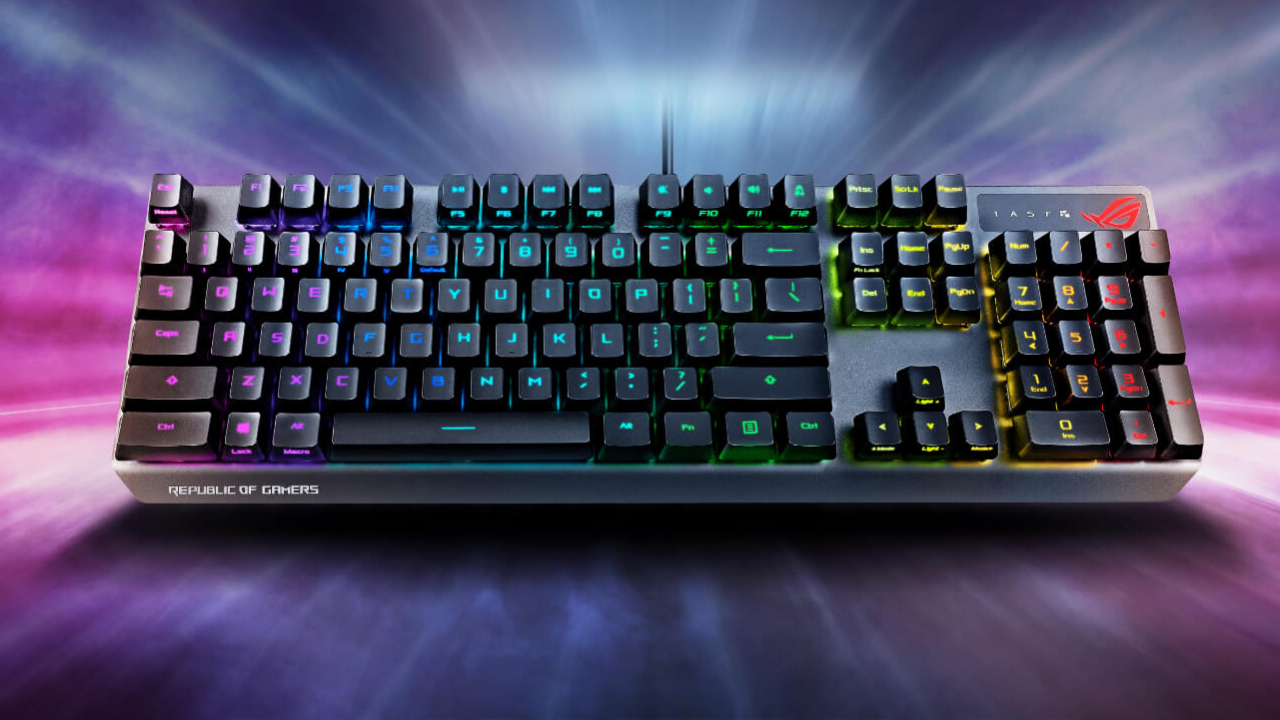GamesRadar+ Verdict
Ultrafast switches that utilise infrared technology are combined with a high-quality manufacturing process to produce one of the best gaming keyboards we’ve seen in ages.
Pros
- +
Optical switches are awesome
- +
Superb durability
- +
Outstanding, refined design
Cons
- -
Keys can be a bit noisy
- -
No wrist wrest
Why you can trust GamesRadar+
We loved the original ROG Strix Scope with its top-notch build quality and straightforward approach to gaming keyboard design. The new Scope RX, then, is simply a refinement of that; taking lessons learned from the first keyboard and adding in some funky new light-powered key switches, all for a reasonable price.
That’s what the ‘RX’ part of the name means - this Scope packs the new ROG RX Optical Mechanical Switch from Asus, not dissimilar to the proprietary switches found in the Huntsman family of Razer keyboards. With lightspeed actuation joining the Strix Scope’s excellent aesthetic and manufacturing standards as a result, this is one of the best gaming keyboards. It looks and feels incredible.
Features

Price: £124.99
Form factor: Full
Switches: ROG RX Optical Mechanical Switch
Keycaps: PCB
Keystroke lifespan: 100 million presses
Media keys: Integrated with function keys
Wrist-rest: None
USB passthrough: Yes
Connectivity: Wired (USB 2.0)
Naturally, the optical key switches are the exciting thing here. Using a hollow stem and cross-shaped stabiliser around the spring means that these switches are the definition of linear, with almost no wobble and satisfying typing action. An infrared beam under each switch replaces the usual metal contact point, making any input register at the speed of light. The lack of a metal filament also improves lifespan, with each switch rated for 100 million keypresses.
Eliminating input delay isn’t all the ROG Strix Scope RX has to offer, though. This might be a fairly standard full-scale gaming keyboard at first glance, but it has a handful of other useful features up its sleeve. A USB-A passthrough on the rear can help to reduce cable clutter on your desk, while keyboard shortcuts can be used to quickly adjust your lighting presets without the need for software.
One feature (returning from previous Scope models) that is sure to be appreciated by any stealthy office gamer is the ‘Stealth key’, a single button with a shady motif that allows you to instantly hide all apps and mute all audio, then resume on command with another tap. It’s a powerful privacy tool, but one that is clearly aimed at users gaming when they, er, shouldn’t be.
Design
The overall design here hasn’t changed that much from the original Strix Scope thanks to an aluminium alloy top plate and PCB keycaps with a matte finish. It’s a very sturdy affair, with its durable materials rated for IP56 dust and water resistance.
It weighs just over a kilogram as well, and the dual USB cable is a thick, rubber-sleeved affair which isn’t particularly flexible, so we couldn’t really call the Scope RX ‘portable’ with any degree of confidence.

Still, this is a relatively compact keyboard considering the full-size layout, with nary an inch of wasted space to be seen. A detachable wrist rest would’ve been nice, but the Scope RX will work fine with any freestanding third-party option.
Above the numpad, a translucent panel is backlit for indicating caps lock, scroll lock and so on, with a large ROG logo lighting up to match the RGB colour scheme you select.
Speaking of RGB, the central per-key lighting offered by those much-touted hollow keystems looks fantastic. Recent improvements to the ROG Armory Crate software have made a huge difference, with a variety of customisable lighting schemes and button remapping features at your fingertips. The Scope RX looks bloody fantastic, and the slick ROG-themed typeface seals the deal.
Performance
If you’re used to low-force or tactile key switches, the ROG RX switches might take some acclimatisation, but it’s impossible to deny that they work incredibly well in first-person shooters. Valorant and Overwatch both felt smooth and responsive to play, and the enlarged Ctrl key makes crouching behind cover much easier for the large-handed players among us.

This is only right; Asus markets the Scope RX as "crafted for FPS gamers", and it’s not hard to see why after just a few hours of use. The RX switches are snappy and the 1.5mm actuation point keeps mis-types to a minimum, meaning that it’s well-suited for regular typing tasks too. However, we did notice that the keys are fairly noisy for non-clicky switches, with keyboard clatter that might be annoying for mic users.
Really, the only thing that feels like it’s missing here is dedicated media keys. Alternate functions are printed on the front-facing sides of the keycaps, which is great, but the layout does feel somewhat stripped-back in terms of extraneous buttons. This is something that very much comes down to personal preference, of course; some users will prefer the minimalist setup.
Overall
There’s a lot to love about the ROG Strix Scope RX, from the clean aesthetic to the lightning-fast actuation. The optical switches aren’t any faster than those seen in competing models like the Razer Huntsman, but the wobble-less keys and central LEDs are awesome, making this an easy five-pointer review.
If you’re serious about first-person shooters but you also use your computer for work (perhaps you’ve been relegated to working from home in the Great Office Purge of 2020), this is one of the best options on the market right now. Excellent durability both in the key switches and general construction means that the Scope RX will last for years, and we highly recommend you make the investment.
Christian is a writer for Maximum PC, but also writes in a freelance capacity for a number of other sites including GamesRadar, PC Gamer, and TechRadar. He knows the PC gaming space inside out, particularly when it comes to hardware including PC builds, keyboards, and other peripherals.




